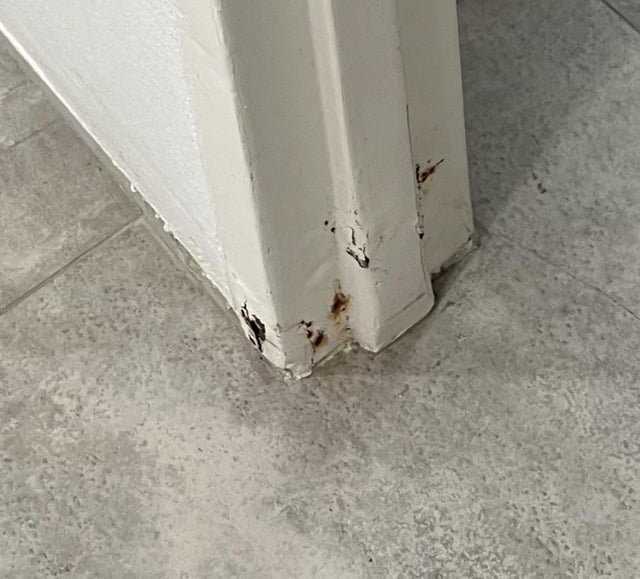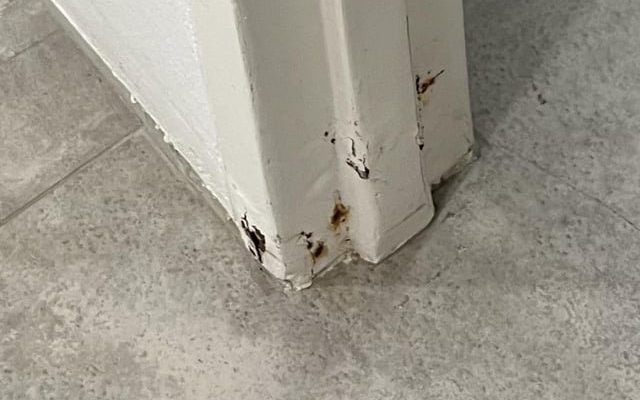
So, what’s causing this corrosion? Well, door hardware can face a tough battle against the elements and other factors. Most commonly, materials like brass, steel, or chrome are used in the making of doorknobs and locks, and each has its own pros and cons when it comes to durability. Whether you’ve got a simple knob from a hardware store or an elaborate handle set from a premium brand, let’s dive into the reasons behind quick corrosion and what you can do about it.
Understanding Corrosion
Corrosion is like nature’s way of reclaiming metals. When they’re exposed to moisture, chemicals, or even certain gases, they start to break down and change. This can happen to your door hardware, especially if it’s not made from corrosion-resistant materials.
Here’s the thing: corrosion can be a slow process, but sometimes it happens noticeably fast, leaving you scratching your head. The rate at which corrosion occurs can depend on several environmental factors, including humidity levels, exposure to salt (in coastal areas), and even pollution. Essentially, once the protective layer on the metal is compromised, it’s like giving the elements an invitation to damage your hardware.
Common Causes of Corrosion
You might be wondering what specific factors contribute to the corrosion of door hardware. Let’s break down some common culprits:
- Moisture: Water is the primary enemy. If your door hardware is frequently exposed to rain or high humidity, rust and other forms of corrosion can develop.
- Salt: Living near the coast? Saltwater in the air can drastically speed up corrosion. It’s similar to how salt can corrode your car’s body over time.
- Poor Quality Materials: Not all metals are created equal. Cheap alloys can corrode more quickly compared to high-grade materials designed to resist the elements.
- Inadequate Maintenance: Just like a car, your door hardware needs some TLC. Failing to clean and protect it can lead to quicker corrosion.
Each of these factors plays a vital role in how long your hardware will last. Keeping them in mind can help you pinpoint the reason behind your specific issue.
Types of Metals Used in Door Hardware
Door hardware comes in various metals, and some are more resistant to corrosion than others. Here’s a quick overview:
- Brass: Known for its beautiful golden hue, brass can corrode but is often treated to prevent this. It’s a favorite for many because it can be polished to a stunning shine.
- Stainless Steel: This is usually your best bet. It has a protective layer of chromium that helps resist rust, making it a popular choice for both interior and exterior applications.
- Chrome-Plated: While chrome can look sleek, it’s generally more susceptible to damage from moisture and can start to peel or flake.
Understanding the type of metal your door hardware is made from can help you take the right precautions to protect it.
Environmental Factors to Consider
You might not realize how much your environment affects your door hardware. Several conditions contribute to corrosion, such as:
- Humidity: If you live in a humid area, especially during the summer months, moisture can easily build up on your hardware.
- Temperature Fluctuations: Rapid changes in temperature can create condensation on metals, contributing to rust.
- Pollution: In urban areas, environmental pollutants can accelerate corrosion. These can be from car exhaust, industrial runoff, or even acid rain.
Also, think about how often your door is used. A door that opens and closes frequently may wear down its protective coating faster, leading to quicker corrosion.
Preventing Corrosion on Door Hardware
Now that you know what causes corrosion, let’s talk about how to keep your door hardware looking shiny and new for as long as possible. Here are some practical steps you can take:
- Regular Cleaning: Wipe down your doorknobs and locks with a damp cloth to remove moisture and dirt. For deeper cleaning, use mild soap and water.
- Avoid Certain Cleaners: Steer clear of harsh chemical cleaners. They can strip away protective coatings and speed up corrosion.
- Apply Protective Coatings: Use a good-quality metal polish or lacquer designed for the specific type of metal.
- Install in a Dry Location: If possible, choose doors that are sheltered from the elements or install awnings to protect them from rain.
Taking these steps can significantly prolong the life of your door hardware and keep it looking polished.
When to Replace Corroded Hardware
Sometimes, even with the best care, your door hardware may corrode beyond repair. Here’s how to know when it’s time to say goodbye:
- Structural Weakness: If the hardware feels flimsy or no longer operates smoothly, it might be time for a replacement.
- Severe Pitting or Rust: If you see deep pits or extensive rust, it’s not worth trying to salvage. It’s likely you’ll just be opening the door to more problems down the road.
- Frequent Malfunctions: If your door lock or knob requires constant adjusting or doesn’t work as it should, replacing it may save you headaches.
You don’t want to compromise on your security or the aesthetics of your home just because you’re hesitating to update your hardware.
The Importance of Choosing Quality Hardware
Ultimately, the best way to fight corrosion is to invest in quality door hardware from the get-go. While it may be tempting to go for the cheapest option, remember the adage, “You get what you pay for.”
Look for brands that offer a warranty or guarantee on their products. This can give you extra peace of mind that the hardware will endure. High-quality materials, like stainless steel or treated brass, may be more expensive upfront, but they often save you money in the long run by reducing the need for replacements.
So, if your door hardware is corroding quickly, it’s worth stepping back to assess the situation. By understanding the causes of corrosion and taking proactive measures, you can preserve your hardware. Regular maintenance, choosing quality materials, and being aware of environmental factors can go a long way in preventing corrosion.
Don’t let rust and corrosion steal the shine from your entrance. With a little knowledge and effort, you can keep your door hardware in top shape for years to come!
